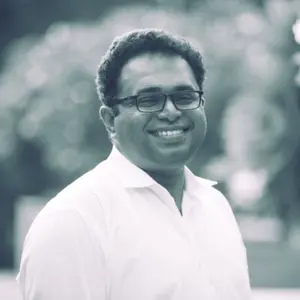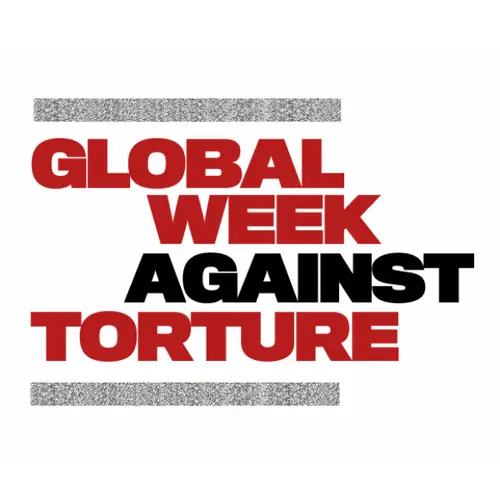Behind Closed Doors: Regional Challenges in Monitoring and Investigating Torture and Supporting Survivors in South Asia and the Middle East

Torture remains a pervasive and systemic issue across South Asia and the Middle East, often occurring within detention facilities where independent oversight is limited and conditions fall short of international standards. This regional webinar, organized by the SAME Network—a coalition of organizations from Pakistan, Sri Lanka, Saudi Arabia, India, and Iran—will focus on strengthening the investigation of torture and independent monitoring of detention in line with international frameworks, including the UN Convention Against Torture and the Mandela Rules. The session aims to foster cross-border exchange, promote survivor-centred practices, and identify strategies and best practices to enhance accountability.
Despite existing legal safeguards, all five countries face serious gaps in the implementation of standards that prohibit torture and ill-treatment. In Saudi Arabia, vulnerable groups like foreign nationals—particularly those facing capital charges—are at heightened risk of torture and denial of due process. In Pakistan, Sri Lanka, and India, entrenched custodial violence and deaths in police custody continue with little accountability. Authorities in Iran have failed to provide accountability for deaths in custody, despite credible reports that they resulted from torture or other ill-treatment Across the region, access to places of detention remains restricted, and national mechanisms for oversight are often weak or politically compromised.
Independent investigation bodies often face significant barriers to accessing detention facilities and investigating allegations of torture, undermining efforts to establish accountability. Even when grave violations are reported, investigations are frequently delayed or nonexistent—falling short of obligations under the Convention Against Torture and the standards set by the UN Standard Minimum Rules for the Treatment of Prisoners (Mandela Rules). This lack of rigorous, impartial investigation safeguards entrenches impunity and denies justice to survivors. Combined with shrinking civic space and declining resources, these systemic failures weaken the broader anti-torture framework and make sustained, rights-based accountability efforts increasingly difficult.
Drawing on the grassroots experience of the SAME Network, this webinar—part of OMCT’s Global Week Against Torture 2025—offers a timely platform to reinforce the role of civil society in detention monitoring and torture prevention, promote regional cooperation in upholding international norms, and support the development of national preventive mechanisms by building the capacities of National Human Rights Institutions (NHRIs) and other oversight bodies in the region.
Structure:
This 90-minute session featured brief thematic presentations by SAME Network members, followed by a moderated discussion and audience Q&A.
- Sarah Belal, Executive Director, Justice Project Pakistan (JPP): Addressing torture in detention, particularly pre-trial detention, building the capacities of NHRIs and the need for rehabilitative survivor support mechanisms.
- Ambika Satkunanathan, Member, UN Voluntary Trust Fund for Victims of Torture; former Commissioner of the Human Rights Commission of Sri Lanka: Strategies to monitor places of detention, conduct torture investigations, and rehabilitation efforts for survivors
- Duaa Dhainy,Researcher, European Saudi Organisation for Human Rights (ESOHR): The abuse of foreign nationals in detention, torture, and challenges in providing meaningful support to survivors.
- Anup Surendranath, Executive Director, The Square Circle Clinic, NALSAR: Documenting deaths in custody and accountability proceedings
- Mahmood Amiry-Moghaddam, Director, Iran Human Rights: Systemic use of torture in custody
- Aisha Shujune Muhammad, Vice-Chair and Rapporteur - UN Subcommittee on Prevention of Torture and other Cruel, Inhuman or Degrading Treatment or Punishment (SPT): The Case for Ratifying the Optional Protocol to the UN Convention Against Torture for the South Asia and Middle East region
- Zainab Malik, SAME Network (Moderator)
Relevant Materials and Links:
- Iran Human Rights, Annual Report on the Death Penalty in Iran (2024)
- Human Rights Commission of Sri Lanka, Prison Study by the Human Rights Commission of Sri Lanka
- Justice Project Pakistan, Policing as Torture: Data Analysis of Punjab Police’s Unlawful use of Torture
- National Campaign Against Torture. India Annual Report on Torture 2019
- ESOHR, Blood Era: A Historic Record of Executions in Saudi Arabia, 2024
Languages spoken: English
No interpretation available
Speakers
-

Sarah Belal
Executive Director Justice Project Pakistan -

Ambika Satkunanathan
Member UN Voluntary Trust Fund for Victims of Torture -

Duaa Dhainy
Researcher European Saudi Organisation for Human Rights (ESOHR) -

Anup Surendranath
Executive Director The Square Circle Clinic, NALSAR -

Mahmood Amiry-Moghaddam
Director Iran Human Rights -

Zainab Malik
SAME network -

Aisha Shujune Muhammad
Vice-Chair and Rapporteur UN Subcommittee on Prevention of Torture and other Cruel, Inhuman or Degrading Treatment or Punishment (SPT)
Event Details
Date
Time 9am — 10.30am CEST
-
 Sarah Belal
Sarah Belal
-
 Ambika Satkunanathan
Ambika Satkunanathan
-
 Duaa Dhainy
Duaa Dhainy
-
 Anup Surendranath
Anup Surendranath
-
 Mahmood Amiry-Moghaddam
Mahmood Amiry-Moghaddam
-
 Zainab Malik
Zainab Malik
-
 Aisha Shujune Muhammad
Aisha Shujune Muhammad
Type Open
Supported By
-
 South Asia Middle-East Network (SAME)
South Asia Middle-East Network (SAME)
-
 Justice Project Pakistan
Justice Project Pakistan
-
 The Square Circle Clinic, NALSAR (India)
The Square Circle Clinic, NALSAR (India)
-
 Iran Human Rights
Iran Human Rights
-
 European Saudi Organisation for Human Rights (ESOHR)
European Saudi Organisation for Human Rights (ESOHR)
-
 Abdorrahman Boroumand Center for Human Rights in Iran
Abdorrahman Boroumand Center for Human Rights in Iran
-
 Subcommittee on Prevention of Torture and other Cruel, Inhuman or Degrading Treatment or Punishment (SPT)
Subcommittee on Prevention of Torture and other Cruel, Inhuman or Degrading Treatment or Punishment (SPT)